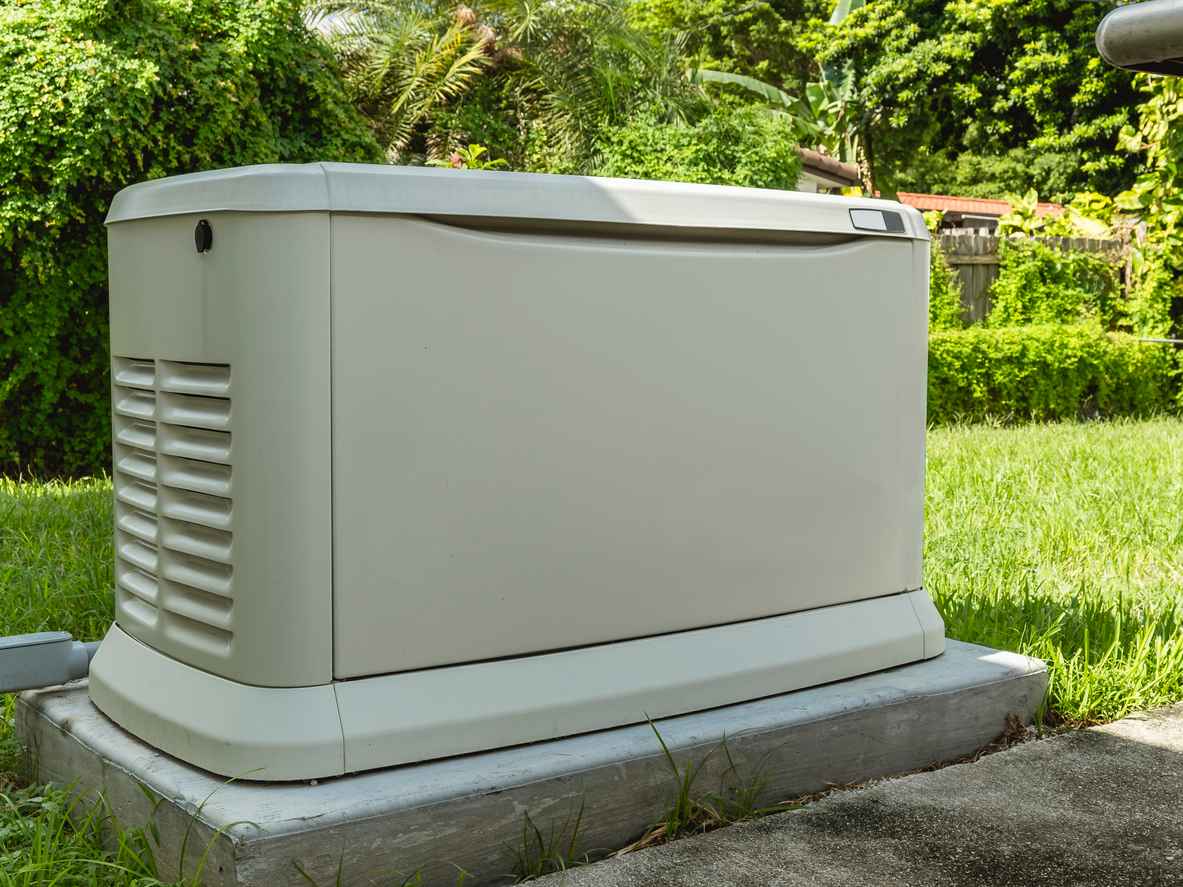Serving Anne Arundel County, Maryland

What Size Generator Do I Need?
When the power goes out, your generator becomes your lifeline—but only if it’s the right size. Choosing a generator that’s too small can lead to overloads, while an oversized unit wastes fuel and money. Many homeowners aren’t sure how to match a generator to their home’s actual power needs.
Getting it right is essential for safety, performance, and peace of mind during an outage. In this blog, we’ll break down what goes into choosing the right generator size and how to estimate what your home truly requires. With the right knowledge—and help from Haramis Electric—you’ll be ready to power through any storm.
Why Generator Size Matters
Choosing the right generator size isn’t just about keeping the lights on—it’s about ensuring your home runs safely and efficiently when the power goes out. A generator that’s too small can quickly become overloaded, which may cause it to shut down, damage connected appliances, or even pose a fire hazard. On the other hand, a generator that’s too large for your needs will cost more upfront and may waste fuel or operate inefficiently.
Properly sizing your generator allows you to prioritize what matters most—like your refrigerator, sump pump, HVAC system, or medical equipment—without overextending the system. It also reduces the risk of power fluctuations or equipment failure during extended outages. Ultimately, the right-sized generator offers peace of mind by delivering reliable backup power when you need it most.
Key Factors That Affect Generator Size
Finding the right generator size for your home starts with understanding a few key factors that influence your overall power needs.
Total Wattage Needed
Every appliance in your home uses a certain number of watts to run. The more devices you want to power during an outage, the more wattage your generator needs to produce. Adding up the wattage of essential items gives you a solid starting point for sizing.
Type of Generator (Portable vs. Standby)
Portable generators are great for powering a few select appliances and lights, while standby generators are permanently installed and can power your entire home. Standby systems require professional installation and can handle higher wattage loads.
Fuel Source and Runtime Expectations
Generators run on gas, propane, or natural gas—and each fuel type has different runtime expectations. Larger generators may consume more fuel, so your available fuel supply and desired runtime will affect your choice.
Home Size and Number of Appliances
Bigger homes with more appliances generally need more power. Heating and cooling systems, sump pumps, and electric water heaters all require a significant amount of wattage, so it’s important to consider the layout and demands of your space.
How to Estimate Your Wattage Requirements
Before choosing a generator, it’s essential to understand how much power your household needs during an outage. Estimating your wattage requirements helps you avoid overloading your system—and ensures you can power the devices that matter most.
List of Essential Devices
Start by making a list of the appliances and systems you want to keep running during an outage. Common essentials include:
- Refrigerator
- Sump pump
- Furnace or HVAC system
- Lights
- Microwave or cooktop
- Router/Wi-Fi
- Medical devices (if applicable)
This list will form the foundation of your generator sizing calculation.
Starting vs. Running Watts
Each appliance uses two types of power:
- Running watts are the continuous power needed to keep a device operating.
- Starting watts are the extra power needed for a few seconds when the device first turns on—especially motors, compressors, and pumps.
It’s important to account for both when sizing your generator, as starting wattage spikes can be significantly higher.
Sample Wattage Table or Formula Explanation
While every home is different, you can add up the wattage for each essential appliance using manufacturer labels or online calculators. For example:
- Refrigerator: 600 running watts, 1,200 starting watts
- Sump pump: 800 running watts, 1,300 starting watts
- Lights (whole home): 400 watts
- Wi-Fi router: 100 watts
Once you total your wattage needs—including the highest starting wattage spike—you’ll have a general estimate for the generator size you’ll need.
Common Generator Sizes for Homes
Once you’ve calculated your wattage needs, it’s easier to match your home to a generator size range. Here’s a general guide to help you understand what different generator sizes can handle.
Small (3,000-5,000 watts)
Best for powering a few essentials like a refrigerator, lights, and a phone charger. Ideal for short outages or small apartments where minimal power is needed.
Medium (6,000-8,500 watts)
Can support multiple appliances such as a refrigerator, sump pump, microwave, lights, and even a small furnace. Great for average-sized homes looking to maintain basic comfort and function.
Large (10,000+ watts)
Capable of running nearly everything in your home, including central air conditioning, water heaters, laundry appliances, and more. This size is ideal for full-home standby systems and households that want to operate normally during an extended outage.
Keep in mind that these are general guidelines, and the actual size you need depends on your specific power priorities and electrical setup.
Get the Right Generator with Help from Haramis Electric
Choosing the right generator size isn’t just about comfort—it’s about safety, reliability, and peace of mind. Whether you’re planning for storm season or simply want to be prepared, selecting a properly sized generator ensures that your home stays powered without risking system overloads or wasted energy.
By understanding your home’s specific needs and getting help from a qualified electrician, you can invest in a solution that’s efficient, dependable, and tailored to your lifestyle.
Contact Haramis Electric today to schedule a generator consultation. We’ll help you determine the perfect size, install it safely, and make sure your home is ready for whatever comes your way.
